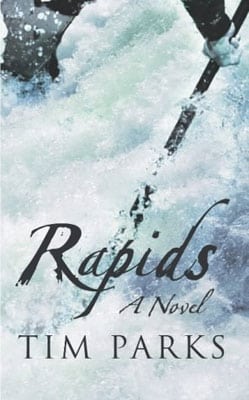 |
| Independent Life Technologies |
In Tim
Parks's novel Goodness, the narrator, George, designs an electronic
game for his severely handicapped daughter Hilary, with pedals for her feet to
press that turn on music and colored lights. Though she does activate the
pedals and apparently enjoy the lights, he cannot tell if she is doing it
"on purpose or at random." When given such a toy (nowadays commercially available, but not in the 1980s, when the novel takes place), children without
developmental difficulties may begin with random button pushing, but they will
quickly figure out which buttons produce which effects. It is not clear to
George and his wife Shirley whether Hilary is engaging in this kind of trial
and error, so purposefulness and randomness remain indistinguishable.
When George decides to try to burn down his house in such a way that Hilary cannot be rescued and will thus die in the fire without his being blamed for her death, he learns something about arson: "The most elementary secret to a successfully designed arson is that the fire must have only one focal point." The arsonist's goal is not to make intention and accident indistinguishable. He wants to disguise intention so that it looks like accident. Something done "on purpose" should look like it happened "at random." This is surely not the case with the serial arsonist who sets fires because he is mentally ill; usually, such an arsonist wants his intentions to be clear. But the one-time arsonist like George does not want to have his creation recognized as something created; it should look like it just happened.
Later, when George has set the fire after long and careful preparation, he finds himself upstairs in his burning house, where he contemplates the position he has put himself in: "This is the moment of truth I have so expensively engineered." The moment is "expensive" not because he has spent money on the act of arson but because of his "sacrifice" of his expensive house to his desire for a life without his handicapped child.
The "engineering" of a "moment of truth" is an excellent description of the writing of fiction. And the novelist's goal is the same as that of the arsonist who does not want to get caught: the "engineering" of that "moment of truth" in the story that leads up to it should not be detectable. For a work of fiction to be credible, it should look not purposeful but random, or its "moment of truth" will not be worth the "expensive engineering" of the writing process.
This is the implicit poetics of Goodness: fiction as an elaborate construction that tries to conceal its own constructedness. There are other types of novels, of course: the long-standing tradition of novels like Tristram Shandy that revel in their fictionality. But they share something with novels like Goodness: they, too, involve the elaborate engineering of "moments of truth," such as the epiphanies in James Joyce's novels. In fiction, a game that we play in order to have intense experiences, the writer may conceal it or flaunt it, or do a little bit of both, but no matter what, the fix is always on.
When George decides to try to burn down his house in such a way that Hilary cannot be rescued and will thus die in the fire without his being blamed for her death, he learns something about arson: "The most elementary secret to a successfully designed arson is that the fire must have only one focal point." The arsonist's goal is not to make intention and accident indistinguishable. He wants to disguise intention so that it looks like accident. Something done "on purpose" should look like it happened "at random." This is surely not the case with the serial arsonist who sets fires because he is mentally ill; usually, such an arsonist wants his intentions to be clear. But the one-time arsonist like George does not want to have his creation recognized as something created; it should look like it just happened.
Later, when George has set the fire after long and careful preparation, he finds himself upstairs in his burning house, where he contemplates the position he has put himself in: "This is the moment of truth I have so expensively engineered." The moment is "expensive" not because he has spent money on the act of arson but because of his "sacrifice" of his expensive house to his desire for a life without his handicapped child.
The "engineering" of a "moment of truth" is an excellent description of the writing of fiction. And the novelist's goal is the same as that of the arsonist who does not want to get caught: the "engineering" of that "moment of truth" in the story that leads up to it should not be detectable. For a work of fiction to be credible, it should look not purposeful but random, or its "moment of truth" will not be worth the "expensive engineering" of the writing process.
This is the implicit poetics of Goodness: fiction as an elaborate construction that tries to conceal its own constructedness. There are other types of novels, of course: the long-standing tradition of novels like Tristram Shandy that revel in their fictionality. But they share something with novels like Goodness: they, too, involve the elaborate engineering of "moments of truth," such as the epiphanies in James Joyce's novels. In fiction, a game that we play in order to have intense experiences, the writer may conceal it or flaunt it, or do a little bit of both, but no matter what, the fix is always on.
*
My previous post on Goodness is "Ruthless Realism and Cloying Sentimentality." Anyone interested in even more posts about Goodness (and soon other novels by Parks) should check out the blog for my current seminar on Parks's novels, which I am giving at the University of Basel English Department this term.



